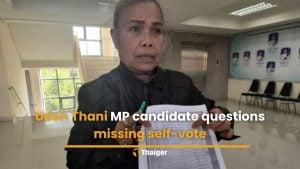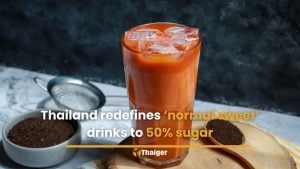Thailand’s new cannabis laws, yes, but no, but yes…

The reports of Thailand’s reformed cannabis laws have reached the far corners of the earth, being reported in the BBC, on CNN, Fox News, Australia’s ABC… well everywhere really. But once readers get past the headline the nitty gritty paints a more nuanced story about exactly what the recent ‘legalisation’ actually means.
“People in Thailand can now grow cannabis plants at home and sell the crop after the nation removed marijuana from its banned narcotics list.” – BBC
“Thailand on Thursday became the first country in Asia to decriminalize cannabis — but tough penalties will still apply to those who use the drug to get high, according to the minister who spearheaded the change.” – CNN
“The government has said it is promoting cannabis for medical use only, warning those eager to light up for fun that smoking in public could still considered to be a nuisance subject to a potential 3-month sentence and 25,000 Thai baht (about US$780) fine. And extracted content remains illegal if it contains more than 0.2% of tetrahydrocannabinol, or THC, the chemical that makes people high.” Time.com
Thailand is the first to advance moves to decriminalise cannabis growing and use in South-East Asia, a region otherwise known for stringent, sometimes draconian, drug laws.
But, despite the fanfare, recreational use of cannabis products is still banned in Thailand, even though supporters of the revised law say the changes effectively decriminalise marijuana. The devil is in the detail.
From a government point of view government, it’s hoped that the easing of restrictions on cannabis could boost it’s use a valuable agricultural crop, even aid tourism. The Thai government is even giving away one million cannabis seedlings to Thai citizens as part of the promotion of the new laws.
The new bill’s champion, Anutin Charnvirakul, deputy PM and public health minister, says that the new laws are “an opportunity for people and the state to earn income from marijuana and hemp”.
It was his Bhumjaithai Party, that Anutin leads, that ran the legalising of marijuana as a major part of their platform in the last general election in 2019. His 51 MP votes in the lower house of the Thai parliament are now crucial to the survival of the governing coalition. Cynics note that the legalising of cannabis is an “unusual” move for an otherwise conservative government, born from a military coup back in 2014.
The Minister and hired influencers are showing that anyone can sell food dishes, potions, creams and health products, as long as they follow the rules – that means products cannot contain ore than 0.2% of tetrahydrocannabinol (THC), the stuff that gives consumers the “high” they enjoy.
So expect restaurants to be advertising their latest dishes laced with cannabis (The Thaiger has done a series of taste tests of these new products and, apart from finding them expensive, couldn’t really tell any difference or ‘taste’ anything).
But the new laws allow households to be able to cultivate up to 6 cannabis “pot” plants at home as long as they register their plants with authorities on a new app. Businesses will also also be able to farm the plant commercially with required permits.
But not foreigners.
Doctors will be able to prescribe commercially registered cannabis and cannabinoid extracts as a treatment.
But, we re-iterate, that using the drug for personal use is still strictly illegal under the new law, and cannabis with THC levels over .2% will still be treated as a Category 5 drug.
Authorities are also warning people against smoking in public, saying that the smoke could be considered a public nuisance and offenders risk arrest.
But advocates believe that the current bill, passed into law on June 9, will be a precursor to further relaxation of cannabis and marijuana laws in coming years. Further draft laws on cannabis control are currently being prepared for consideration by the Thai parliament.
So can you smoke pot legally in Thailand? No, you still can’t smoke marijuana in public, and it is still remains illegal to sell or supply any products containing more than 0.2% of the magic THC component of the plant.
How authorities police this .2% THC level in plants, and how liberal their approach to recreational smokers will be in the wake of the new legislation, is yet to be seen.
As with the compulsory wearing of helmets on bikes, the current requirement to wear face masks, speed limits, gambling (the list could take a few pages), there is often a difference between the actual law when compared to the way it is enforced in practice. The new cannabis laws for Thailand may fall into this category.
Latest Thailand News
Follow The Thaiger on Google News:


























